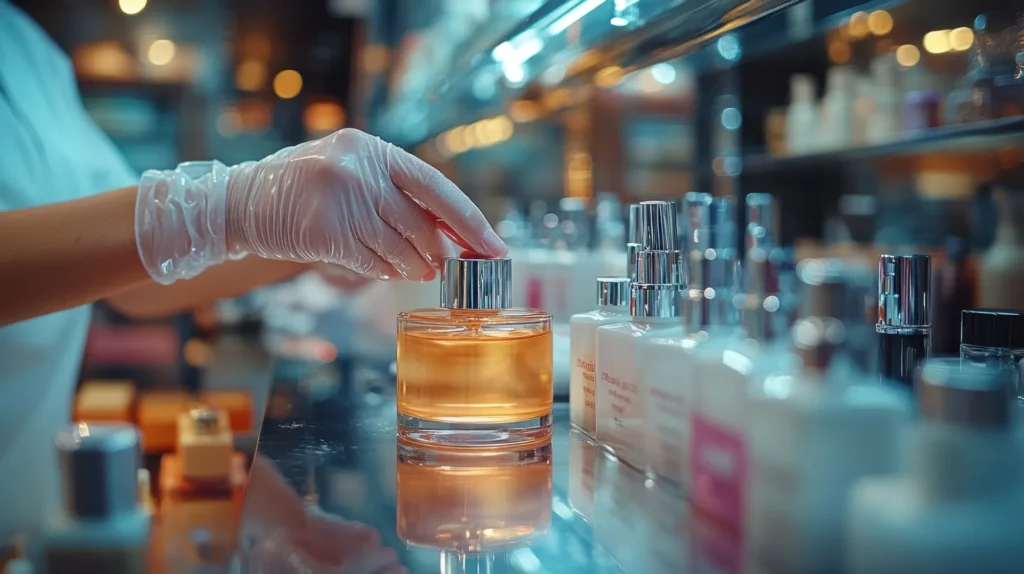In the rapidly evolving beauty and personal care industry, many businesses turn to third-party manufacturers to bring their cosmetic products to market. Two of the most common models are private label and contract manufacturing. Both options offer significant advantages but serve different business needs. Understanding the key differences between these models and analyzing current industry trends can help businesses make informed decisions.
Understanding Private Label Manufacturing
Private label manufacturing involves working with a manufacturer that offers ready-made products that can be branded and sold by your company. These products are often produced from existing formulations, making it a fast and cost-effective way to bring a cosmetic line to market.
Benefits of Private Label Manufacturing:
- Faster Time to Market: Since the formulations and packaging are already developed, private-label products can be launched quickly.
- Lower Costs: Private label options typically come with reduced development costs, as the products have already been created.
- Turnkey Solutions: Manufacturers often provide complete solutions, including product development, packaging, and branding.
Challenges:
- Limited Customization: With private label products, customization options are limited. Companies may be confined to choosing from pre-existing formulations and packaging.
- Exclusivity Issues: Since multiple brands can sell the same product, it can be harder to differentiate from competitors.
Private Label Insights
According to a 2023 report by Mintel, private-label cosmetics are projected to grow by 5.8% annually, as more retailers and beauty brands opt for quicker go-to-market solutions.
Understanding Contract Manufacturing
In contrast, contract manufacturing involves partnering with a manufacturer to create a product based on a company’s unique specifications. This model offers flexibility in developing custom formulations, packaging, and branding, giving companies greater control over the final product.
Benefits of Contract Manufacturing:
- High Customization: With contract manufacturing, brands can develop exclusive formulations and create custom packaging, ensuring a unique product.
- Full Control Over Product: Brands have more say in ingredient sourcing, formulation, and production processes.
- Stronger Branding: Since the products are fully customized, it’s easier to establish brand identity and create exclusive product lines.
Challenges:
- Longer Lead Times: Developing a product from scratch takes time, from formulating the product to creating the packaging.
- Higher Development Costs: Due to the customization involved, contract manufacturing tends to have higher initial costs.
Contract Manufacturing Insights
Data from Grand View Research indicates that the global contract manufacturing market for cosmetics is expected to grow at a CAGR of 7.1% from 2023 to 2030, driven by rising demand for customized skincare and beauty products.
Key Differences Between Private Label and Contract Manufacturing
Here’s a comparison of the two models:
| Factor | Private Label | Contract Manufacturing |
|---|---|---|
| Customization | Limited to pre-made formulations and packaging | Full customization of formulation and packaging |
| Time to Market | Short (Products are ready for branding) | Longer (Custom formulations take time) |
| Development Costs | Low (Pre-formulated products) | High (Custom development and packaging) |
| Brand Differentiation | Low (Multiple brands may sell similar products) | High (Unique product formulations) |
| Control Over Product | Minimal control (Products are already made) | Full control (From ingredients to packaging) |
| Ideal for | Startups, small businesses | Established brands, companies with unique needs |
Choosing the Right Model for Your Business
Deciding between private label and contract manufacturing depends on your company’s goals, budget, and timeline.
Private Label is Ideal for:
- Businesses looking for quick market entry with limited customization.
- Small to mid-sized companies with tighter budgets.
- Brands that prioritize lower upfront costs over unique formulations.
Contract Manufacturing is Best for:
- Established brands seeking unique product lines with complete control over formulations.
- Companies willing to invest more time and resources into R&D.
- Brands that want to stand out with exclusive products and customized packaging.
Industry Trends and Insights
The demand for third-party cosmetic manufacturers is steadily growing, with both private label and contract manufacturing contributing significantly to the global beauty industry. As of 2023, the global cosmetic manufacturing market was valued at $160.92 billion and is projected to reach $215.43 billion by 2030, with private label and contract manufacturing playing pivotal roles.
Additionally, data from Statista shows that 36% of global consumers are more likely to purchase private-label cosmetics due to their affordability and the increasing quality of these products. On the other hand, personalized beauty is one of the fastest-growing segments, driving demand for custom formulations and contract manufacturing services.
Conclusion
Both private label and contract manufacturing have their advantages, and choosing between the two depends on your business’s needs for speed, budget, and customization. As consumer preferences evolve and the beauty industry continues to grow, businesses that align their manufacturing strategy with market trends are likely to succeed.
For companies looking to launch innovative cosmetic products, understanding these models will help them navigate the complexities of product development and differentiate their brands in a competitive market.






